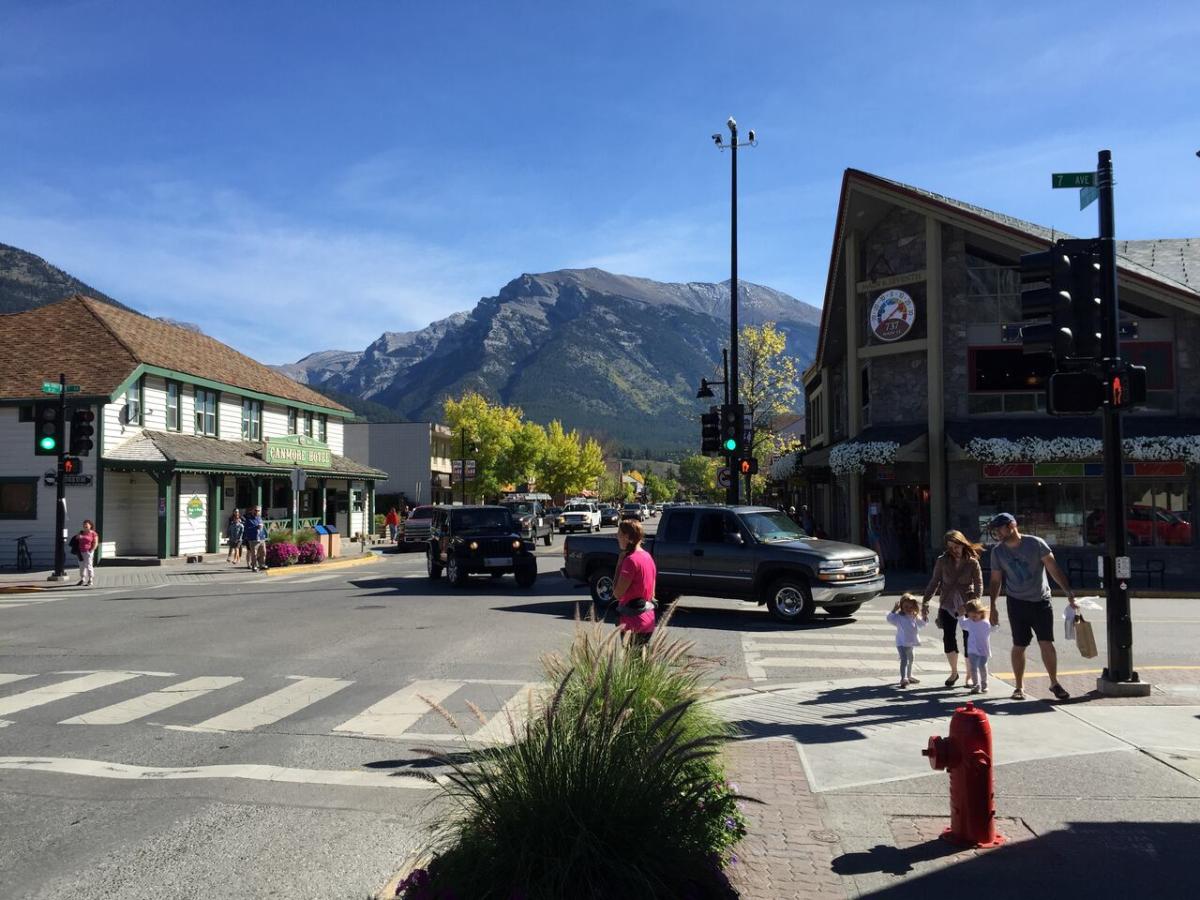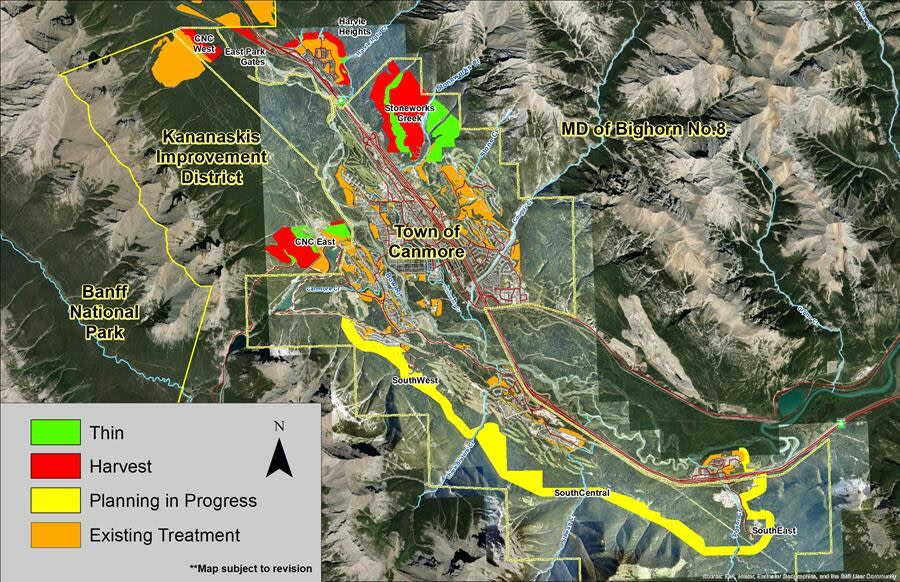


In collaboration with several communities in the Bow Valley, the mountain town of Canmore, Alta., is taking the lead on a project to construct a fireguard in the Bow Valley.
Canmore released a plan this week for what it’s calling the Bow Valley Community Fireguard, which would run from the east park gates to Dead Man’s Flats.
The Town says the plan was created with help from wildfire behaviour experts, disaster planners, forestry specialists and biologists.
The goal is to slow the spread of future wildfires and protect lives, property and critical infrastructure in the Bow Valley, according to a press release.
The fireguard’s construction is not a sure thing just yet, as it still needs funding.
The project leader is Caitlin Miller, Canmore’s director of emergency management and manager of protective services.
She says an application for fireguard funding will soon be submitted to the Forest Resource Improvement Association of Alberta’s (FRIAA), which is a non-profit group accountable to the Ministry of Forestry and Parks.
The FRIAA is managing a community fireguard funding program, partly funded by the Government of Alberta.
“The applications are due mid-September. So we’re looking forward to submitting an application and hopefully being successful to start the construction this fall,” said Miller.

Draft overall plan for the Bow Valley Community Fireguard. (Town of Canmore)
Removing ‘an overabundance’ of trees
The bulk of the work would be removing trees to create a thinned-out forest zone in multiple areas of the Bow Valley.
“If you’ve removed the trees and opened up this band of more open cover, then it’s going to be more conducive to aerial suppression with air tankers or helicopters,” said fire behaviour specialist Jen Beverly, an associate professor in the Department of Renewable Resources at the University of Alberta.
She says fewer trees means less fuel for wildfires, which can reduce fire intensity and make them easier to manage.
“It could also assist with constructing firelines with heavy equipment, bulldozers and ground crews.”
The plan calls for mechanically harvesting trees over the next three to five years.
“We need it because we have an overabundance of trees in the Bow Valley. They’re all old pines and other types of coniferous trees that just really want to burn,” said Miller, the project leader.
Beverly agrees, saying there are areas in the Bow Valley at huge risk to wildfires. As part of a separate initiative, she recently completed an in-depth analysis of the landscape around Canmore and its exposure to potential ignition.
“What you have in this particular area is a lot of conifer fuel. Those are trees with needles on them, and those are extremely flammable fuel. When they do burn, it’s going to be a very intense fire,” said Beverly.
If a fireguard is built, construction will happen in phases. The plan calls for work to be prioritized first at Stoneworks Creek, Harvie Heights and the east park gates because typical wind conditions and topography suggest wildfires would spread more quickly in those areas.
In preparation for construction funding coming through, Bow Valley officials have conducted engineering studies to ensure that building the fireguard is feasible, and have completed local wildlife studies to determine its potential impact on animals.
Miller says her team has also been collaborating with provincial officials to sort out land permits.
Jasper destruction top of mind
The large fire earlier this summer in Jasper National Park that destroyed some of the townsite has impacted plans for the Bow Valley Community Fireguard, according to Miller.
“In terms of how quickly we thought that the process was going to unfurl, that seems to have been accelerated. I hope that it’s helped the public understand how important this project is.”
Miller says the total estimated cost to build the fireguard has not yet been determined.